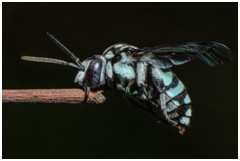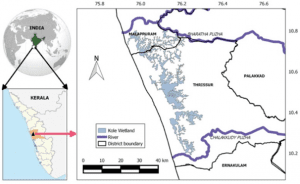HEALTH ISSUES
1. VERTIPLANE X3 DRONE DELIVERS TB MEDICINES
TAGS: PRELIMS- GS-II-HEALTH ISSUES
THE CONTEXT: The Ministry of Health recently conducted a trial of delivering TB medicines in a drone. The trials were conducted in Rishikesh. Traversing through the Himalayas, especially during rainy seasons and winter seasons is challenging and time-consuming. Drones can deliver medicines to hilly regions quickly even during harsh weather conditions.
THE EXPLANATION:
Drone delivery of TB medicines
- The trials of TB medicine delivery using drones were conducted by the All India Institute of Medical Sciences under the supervision of the Health ministry. The trial was successful. The drone delivered 2 kilograms of anti-tubercular drugs to a hospital in Tehri Garhwal from AIIMS.
Future plans
- GoI is planning on using drone technology to deliver medicines and also sputum samples to laboratories and eliminate TB by 2025. Further, government hospitals will be encouraged to use this technology to deliver organs for transplantation.
About the drone used in the trials
- The drone can carry 4 kilograms. It can traverse 50 km. The drone was designed and built by Tech Eagle Innovations. The drones developed by the same company were used by the Meghalaya government to transport medicines. The Government of Meghalaya set up a drone station in Jengjal. Drones were also used by ICMR to deliver COVID vaccines in Manipur.
VALUE ADDITION:
Tuberculosis
- Cause: It is caused by Mycobacterium tuberculosis (bacteria) and it most often affects the lungs.
Transmission
- TB is spread through the air when people with lung TB cough, sneeze or spit. A person needs to inhale only a few germs to become infected.
- With TB infection, a person gets infected with TB bacteria that lie inactive in the body. This infection can develop into TB disease if their immune system weakens.
Symptoms
- Prolonged cough, chest pain, weakness/fatigue, weight loss, fever, etc.
- Often, these symptoms will be mild for many months, thus leading to delays in seeking care and increasing the risk of spreading the infection to others.
Diagnosis
- In the case of suspected lung TB disease, a sputum sample is collected for testing for TB bacteria.
- For non-lung TB disease, samples of affected body fluids and tissue can be tested.
- WHO recommends rapid molecular diagnostic tests as initial tests for people showing signs and symptoms of TB.
- Other diagnostic tools can include sputum smear microscopy and chest X-rays.
Treatment
- Bedaquiline for multidrug-resistant (MDR) TB
- Both TB infection and disease are curable using antibiotics.
- It is treated by the standard 6-month course of 4 antibiotics. Common drugs include rifampicin and isoniazid.
- In drug-resistant TB, the TB bacteria do not respond to the standard drugs. Its treatment is longer and more complex.
- In case of infection (where the patient is infected with TB bacteria but not ill), TB preventive treatment can be given to stop the onset of disease. This treatment uses the same drugs for a shorter time.
2. GOVERNING ORGAN TRANSPLANTATION IN INDIA
TAGS: GS- HEALTH ISSUES
THE CONTEXT:The Central Government has recently made major changes in the organ transplant regulations in the country under its ‘one nation, one policy’ rule by removing the 65-year age cap for recipients and allowing them to register in any state and not just their state.
THE EXPLANATION:
About Organ Transplantation in India:
- The primary legislation governing organ transplantation in India is the Transplantation of Human Organs Act, passed in 1994.
- It provides a system to regulate the removal, storage, and transplantation of human organs for therapeutic purposes and for the prevention of commercial dealings in human organs.
National Organ transplant programme:
- It is implemented by the Directorate General of Health Services, Government of India.
- Objectives:
- To organize a system of organ and Tissue procurement & distribution for transplantation.
- To promote deceased organ and Tissue donation.
- To train the required manpower.
- To protect vulnerable poor from organ trafficking.
- To monitor organ and tissue transplant services and bring about policy and programme corrections/ changes whenever needed.
National Organ and Tissue Transplant Organization (NOTTO):
- It is a National level organization set up under the Directorate General of Health Services, Ministry of Health and Family Welfare, Government of India.
- It functions as the apex center for coordinating all activities and networking for the procurement and distribution of organs and tissues and maintaining the registry of organs and tissue donation and transplantation in the country.
Organ donation in India:
- Organ donation means giving part of the body (organ) to a person with end-stage organ disease who needs a transplant.
- In India, organ donations are legal under the Transplantation of Human Organs Act (THOA), 1994, which also legalizes the concept of ‘brain death’, the permanent cessation of all brain functions.
- Organ donation is a voluntary process wherein you can fill up a consent form to donate your organs in the event of your demise.
Types of organ donation:
Living Donor Organ Donation:
- A person during his life can donate one kidney, a portion of the pancreas, and a part of the liver.
- Living Donor is any person not less than 18 years of age who voluntarily authorizes the removal of any of his organ and/or tissue, during their lifetime, as per prevalent medical practices for therapeutic purposes.
- The donor can be a family member, relative, friend, neighbour, or in-law.
ENVIRONMENT & ECOLOGY
3. THYREUS NARENDRANI
TAGS: PRELIMS- GS-III- ENVIRONMENT & ECOLOGY
THE CONTEXT: Recently, researchers from Kerala has been discovered a new species of cuckoo bee from the Kole wetlands and named it Thyreus narendrani.
THE EXPLANATION:
About Thyreus narendrani:
- The new species belongs to the family Apidae of the order Hymenoptera.
- The genus Thyreus consists of cuckoo bees or cleptoparasitic bees.
- Cuckoo bees parasitise the nest of other bees by breaking and entering and laying their eggs.
- Unlike other female bees, cuckoo bees lack pollen-collecting structures.
- Once the cuckoo bee’s larva hatches out in the nest of the host bee, it consumes the food stored by the host for its own growing larva.
About Kole wetland
- It is the largest brackish, humid tropical wetland ecosystem located in the state of Kerala.
- Extending from the northern bank of Chalakudy River in the south to the southern bank of Bharathapuzha River in the north
- It is situated in the central Asian Flyway of migratory birds.

INTERNATIONAL RELATIONS
4. US BILL ON ARUNACHAL PRADESH LAC
TAGS: PRELIMS PERSPECTIVE- GS-II-INTERNATIONAL RELATIONS
THE CONTEXT: The US senate recently passed a resolution condemning China. According to the resolution, China is changing the status of LAC using its military force. Also, the resolution lauded India for the country’s steps to defend itself against Chinese aggression at the border.
THE EXPLANATION:
About the resolution
- The resolution title was long and self-explanatory. The title mentioned that Arunachal Pradesh was an integral part of India. It also said that the actions of China in South Asia are provocative.
Implications of the resolution
- The USA is strongly supporting India and its international relations. US Congress had passed such resolutions earlier too. For instance, in 2020, the US Congress passed a similar resolution after the Galwan issue. However, this is the first time, the US is passing a detailed and open resolution that is echoing the position of India in the border areas.
Political significance
- The resolution had the support of both the Republican and conservative party support. This is an additional benefit. This means the support from the US and its citizens is strong. The increase in the number of Indian Americans in the country may be one of the major reasons for such collective support.

PRELIMS PERSPECTIVE
5. USTAD BISMILLAH KHAN YUVA PURASKAR
TAGS: PRELIMS PERSPECTIVE
THE CONTEXT: The award is presented by Sangeet Natak Akademi to artists in the field of dance, music, and drama. It is presented annually to artists below the age of 40. Every year, more than 33 artists are presented with the award. The winners receive 25,000 rupees of the cash price. The Ustad Bismillah Khan Yuva Puraskar is being presented since 2006. The awards were presented by the Union Minister of Culture and Tourism.
THE EXPLANATION:
Ustad Bismillah Khan Yuva Puraskar
- 19 artists from North East India won the award. The awards were presented for the years 2019, 2020, and 2021. 102 awardees were selected. The lists were finalised in 2022. However, are being presented now. Categories include Sitar, Flute, Mridangam, etc.
Who is Ustad Bismillah Khan?
- He was a famous Shehnai musician. He was one of the few musicians in the country to receive Bharat Ratna. Before him, musicians M S Subbulakshmi and Ravi Shankar were honoured with the award before him and he was the third to receive the honour.
Sangeet Natak Akademi
- It was established by the Education ministry of India in 1952. The main objective of the academy is to promote and preserve the cultural heritage of the country.
VALUE ADDITION:
Sangeet Natak Akademi confers classical status on nine Indian dance forms:
- Bharatanatyam: Tamil Nadu
- Kathak: Northern India
- Kathakali: Kerala
- Kuchipudi: Andhra Pradesh
- Manipuri: Manipur
- Mohiniyattam: Kerala
- Odissi: Odisha
- Sattriya: Assam
- Chhau: Odisha




